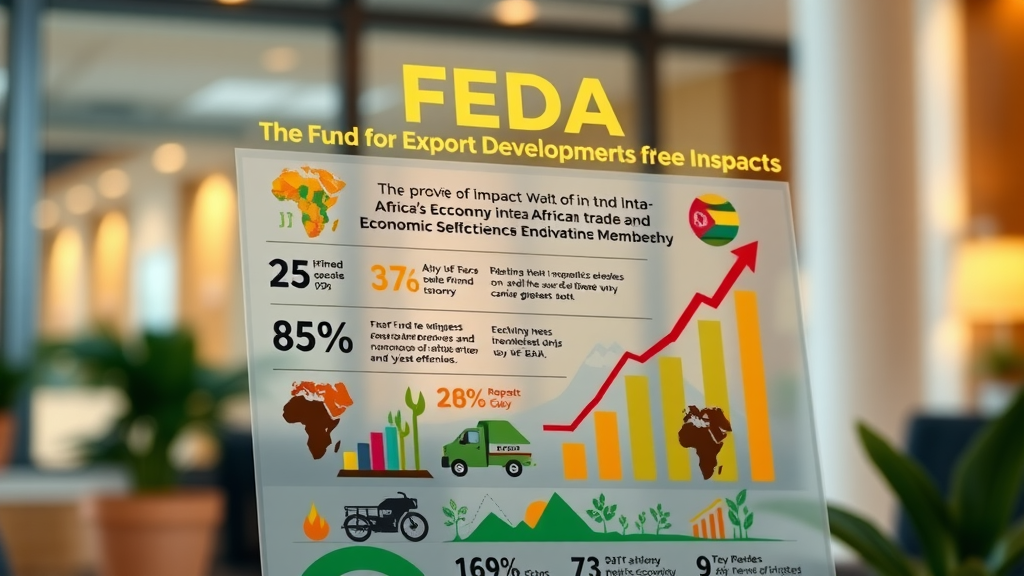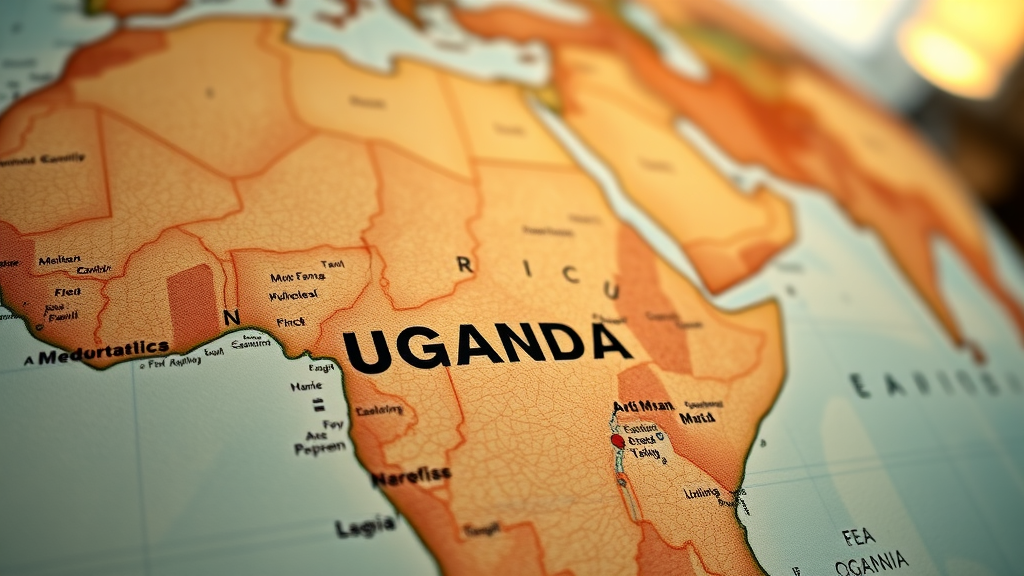
Have you ever wondered how African countries can reshape their economies independently and sustainably? The FEDA impact on Africa is a fascinating topic that delves into the transformation of economic dynamics across the continent. With countries like Uganda joining FEDA, the potential for accelerated growth and self-sufficiency is becoming a reality.
Understanding FEDA: An Overview

The Fund for Export Development in Africa (FEDA) is a pivotal initiative set up by the African Export-Import Bank (Afreximbank) to facilitate impactful investments across the continent. Its mission is centered on enhancing inter-African trade and fostering industrialization through various sectors including the manufacturing and value-added export industries.
FEDA functions as a development impact investment platform, focusing on empowering enterprises by providing necessary equity, quasi-equity, and debt capital. The key objective remains the same: bridge the funding gap that persists within Africa’s trade sector.
The Significance of Uganda's Membership in FEDA
FEDA's Role in Economic Transformation

Uganda's recent accession to FEDA marks a significant milestone in the country's economic development journey. The government’s decision underscores a commitment to strategic partnerships aimed at not only boosting local production but also enhancing export capabilities. This change is vital, as highlighted by Marlene Ngoyi, CEO of FEDA, who stated:
“Uganda’s decision to join FEDA is a testament to the country’s confidence in FEDA’s mission and to its commitment to accelerating Africa’s economic transformation.”
Expert Insights on FEDA's Impact
As more African nations recognize the potential of intra-African trade, the narrative shifts towards self-reliance and economic growth. Uganda’s integration into FEDA signifies satisfaction with increased investment flows to the region, which promises improved infrastructure and economic resilience. For a deeper understanding of how trade agreements like the African Continental Free Trade Area (AfCFTA) are transforming logistics and trade, you can explore this article on AfCFTA's impact.
FEDA's Investment Strategy and Focus Areas

The investment strategy employed by FEDA spans multiple sectors with a primary focus on aligning development with the continent's economic needs. This includes technology, transportation, and agribusiness, among others. By prioritizing key areas for investment, FEDA aims to bolster economic output and create sustainable employment opportunities across Africa.
Key Sectors for Investment
FEDA emphasizes critical sectors such as healthcare, education, and infrastructure development. For example, investing in technology can fuel other sectors by ensuring they have the necessary digital tools to thrive in the global marketplace.
Long-term Capital for African Economies
Providing long-term capital is crucial for fostering an environment conducive to industrial growth. FEDA is positioned to offer significant investment support, which ultimately drives economic stability and encourages local entrepreneurship. The impact of strategic investments in sectors like oil refining can be seen in initiatives such as Dangote's Oil Refinery, which is a game-changer for African trade and commerce.
The Broader Economic Context: Trade vs. Aid
The Need for Intra-African Trade

The dialogue surrounding FEDA's impact on Africa’s economy cannot exclude the necessity of robust intra-African trade frameworks. Trade is increasingly recognized as a far more sustainable solution than foreign aid. Developing pathways for African goods to move freely across borders will leverage each nation’s strengths, leading to collective prosperity.
FEDA's Contribution to Sustainable Development
The contributions of FEDA extend significantly towards sustainable economic practices. Ambassador Philip Rukikaire noted the importance of these developments by stating:
“By joining FEDA, we reaffirm our dedication to a prosperous Africa, driven by industrialization and intra-African trade.”
Challenges and Opportunities Ahead
Potential Barriers to FEDA's Success

While the vision for FEDA is optimistic, several barriers loom ahead. These include regulatory challenges, political instability, and the lack of infrastructure in many regions that could hinder investment flows. Addressing these issues will be critical as countries like Uganda start to reap the benefits of FEDA's framework.
Opportunities for Growth and Development
Despite the challenges, the opportunities that arise from FEDA’s mission cannot be underestimated. The focus on local solutions encourages innovation and entrepreneurship, fostering a culture of self-reliance among African youths.
What You'll Learn About FEDA's Impact
- Understanding FEDA's mission and objectives
- The significance of Uganda's accession
- Key sectors targeted for investment
- The role of intra-African trade in economic growth
Frequently Asked Questions (FAQs)
What could the impact of CFTA be on Africa?

The African Continental Free Trade Area (CFTA) is designed to increase intra-African trade, which could significantly elevate Africa's economic standing on the global stage.
What impact did the Bantu have on Africa?
The Bantu migrations substantially influenced the cultural and linguistic landscape of Africa, aiding in the spread of agricultural practices and ironworking.
What impact did the conference have on Africa?
Conferences focused on economic development have historically provided platforms for collaboration, leading to policy reforms and increased investments.
What was slavery's impact on Africa?
The transatlantic slave trade had profound social and economic impacts on African societies, destabilizing communities and disrupting traditional structures.
Key Takeaways
FEDA impact on Africa is a vital consideration for the continent’s future. Understanding the developments within FEDA can paint a clearer picture of Africa's pathway toward economic self-sufficiency.
Conclusion: The Future of FEDA and Africa's Economy
FEDA holds the promise of a new economic era for Africa, where trade thrives, and nations position themselves as key players on the global stage. As we look forward, continued engagement and commitment from member nations will be crucial for success.
Call to Action: Engage with FEDA's Mission

It's time to support and engage with initiatives like FEDA that seek to revolutionize Africa's economic framework. By advocating for stronger intra-African trade, we contribute to a brighter future for the continent.


 Add Row
Add Row  Add
Add 






 Add Row
Add Row  Add
Add 

Write A Comment